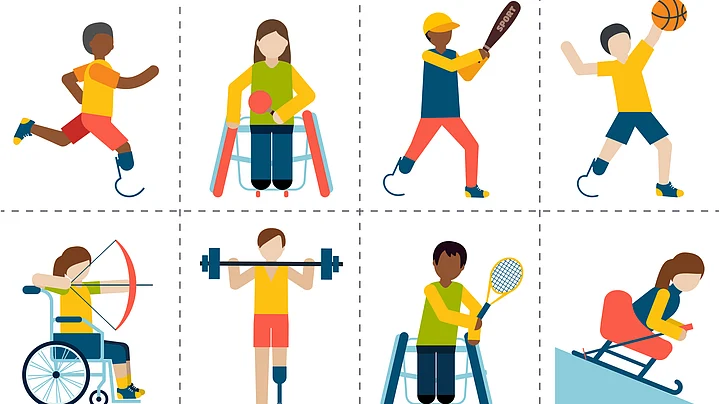“Yeh log shaadi material nahin hain madam (These people aren’t marriage material madam),” says Dolly’s coach categorically. “Kaise karenge yeh shaadi, aap hi batao? (How will they get married, you tell me?)”
18-year-old Dolly is a competitive weightlifter. She won two bronze medals in this year’s World Games at Los Angeles, one each in the squat and deadlift categories. Her struggle, however, was far greater than what every non-cricket playing athlete in India typically faces.
Dolly lost her father at 10. She has never seen her mother. She took admission in an orphanage in Amritsar where children started calling her “paagal (crazy)” and said she had a “problem”. She was hyperactive and unpredictable, but that was a way of life for her. She realised what was normal for her was not normal for others.
Dolly was diagnosed with epilepsy, down syndrome, and termed as a “hyper” child. She was ridiculed for being overweight and was picked-on by children her age. She has struggled all her life with this question:
Question No. 1: Why Are You so Fat?
When Dolly first joined the National Camp, she was largely singled out for her weight. She was picked-on insensitively by her teachers and students, yet she didn’t let the pressure get the better of her.
Dolly shut her critics up with a stellar performance at the Special Olympics World Games. She is now a permanent member of the national contingent. Her weight thus, became her greatest strength.
Dolly’s predicament was shared by 14-year-old Ranveer Saini who is an autistic national-level golfer.
Ranveer’s performance in this year’s Special Olympics World Games made the best in the business sit up and applaud. Such raw talent at a tender age is heartening to see, say golfers who have played alongside with him.
Ranveer was just as naughty as other children from his neighbourhood, yet he was called “mad” by many.
Question No. 2: Is He/She Mad?
“Our son is autistic, not mad”, Ranveer’s parents were tired of clarifying every time an insensitive stoic would find Ranveer not complying by his/her “normalcy” standard.
I stopped giving justifications for my son’s behaviour because I realised how shallow the people were. As long as Ranveer was healthy and exploring his talents, I didn’t care about anything else.
— Bakhtawar Saini, Ranveer’s mother.
When asked how Ranveer took taunts, she smiles and says, “I never let them reach him. I am his shield”.
Ranveer is the first Indian to win a Gold Medal at the World Special Olympics 2015. Ranveer played against 22 countries over 4 rounds of golf at the Wilson Golf Course at Griffith Park, Los Angeles. He was on the leader board for 3 consecutive days and sealed a spectacular victory with a huge 9 stroke margin on the 4th and final day.
Ranveer’s support and close friend at the World Games, Rajan Jha complimented Ranveer’s performance brilliantly as they silently scripted history.
20-year-old Rajan is a nation-level racer and an aspiring coach. His exceptional performance in this year’s Special Olympics World Games earned him a bronze medal each in 4X400m relay race and 1500 m run. However, his journey has not been an easy one.
He is a slow learner and has speech disability.
My child is among the fastest sprinters in the world. So what if he takes time to understand things; he also gets laurels for his country.
— Sunita Jha, Rajan’s mother
Although he rarely saw this an as impairment; till the society forced him to see it as one and asked him this:
Question No. 3: How Will You Conduct Yourself When You Grow Up?
Since Rajan was always a go-getter, he would run errands at home to relieve his parents off some work. However, peer-pressure melted his gut.
- His speech incoherence was laughed at. He naturally took time to understand simple math or even conversations, but who has time these days to wait for anyone?
— Sunita Jha
By the time he would grasp a situation, he would already be at the butt of all jokes.
When asked how the future seemed for Rajan, she replies emphatically:
Rajan is a great sports-person and wants to become a coach. I hope that he is able to instil sensitivity and compassion in his students so that they refrain from attacking a child who is different from others.
With a glint in their eyes and a jump in their stride, these athletes undercut criticisms, questions, doubts and build a niche for themselves. We talk about living in an inclusive society, but alas, we fail to practise what we preach. It’s about time we open ourselves to something that’s out of the ordinary.
(At The Quint, we question everything. Play an active role in shaping our journalism by becoming a member today.)
